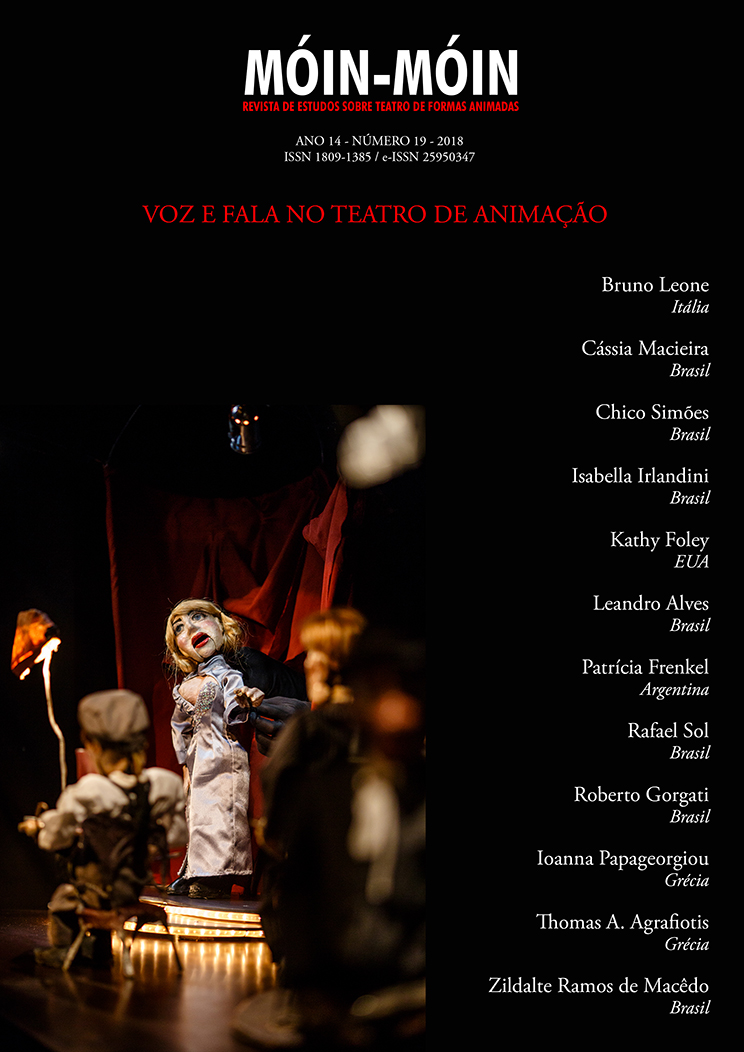A Voz de Rosinha Boca Mole: astúcia feminina e masculina
DOI:
https://doi.org/10.5965/2595034701192018061Resumo
Esta pesquisa discute o caráter político da deformação verbal do personagem feminino no Teatro Popular de Mamulengo, disfarçada pela voz do bonequeiro. Este tipo de encenação caracteriza-se pela predominância do universo masculino, quando voz e fala femininas deveriam misturar-se, em uma ação provocadora para, juntas, compor o jogo cênico e acionar a imaginação do espectador. Entende-se que há transgressão do mamulengueiro, tanto no travestimento da voz quanto em outras “diabruras”, podendo ser um gesto prosaico como uma resposta a certas exigências da vida comum (práxis). Procura-se entender se a voz e a fala do personagem feminino são uníssonas − nos modos político e estético − e se podem ser percebidas como “astúcia”. Para tanto, investigou-se a fala de Rosinha Boca Mole na voz de Danilo Cavalcante, do Grupo Mamulengo da Folia.
Palavras-chave: Mamulengo. Artefato. Boneca.
Downloads
Downloads
Publicado
Como Citar
Edição
Seção
Licença
Ao submeter um artigo à Móin-Móin Revista de Estudos Sobre Teatro de Formas Animadas e tê-lo aprovado os autores concordam em ceder, sem remuneração, os seguintes direitos à Revista: os direitos de primeira publicação e a permissão para que a Revista redistribua esse artigo e seus metadados aos serviços de indexação e referência que seus editores julguem apropriados.
Os artigos cujos autores são identificados representam a expressão do ponto de vista de seus autores e não a posição oficial da revista Móin-Móin.
Plágio, em todas as suas formas, constitui um comportamento antiético de publicação e é inaceitável. A Revista Móin-Móin reserva-se o direito de usar software ou outros métodos de detecção de plágio para analisar os trabalhos submetidos.
![]()
Este obra está licenciado com uma Licença Atribuição-NãoComercial 4.0 Internacional






